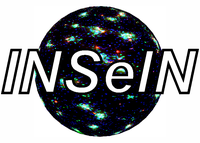New Research Project
Interactions between excitation and inhibition in the structrual self-organization of neuronal network
The yin and yang of excitation and inhibition is an important factor in the functional stability of the brain but the role of this interaction in the structural development of neuronal networks is poorly understood. A keycontrol variable in this is the spontaneous network activity emerging with the developmental formation of synaptic contacts. Excitatory inputs can be seen as attractive and guide neuronal migration and the elaboration of neurites to increase interconnectivity. This attractiveness is limited, though. Neurons receiving excess excitatory input are thought prune their neurites and synaptic connections to maintain their activity levels within functional dynamic ranges. In model systems, the homeostatic regulation of connectivity seems sufficient to stabilize activity levels in a neuronal network. What then is the role of inhibition in network differentiation? About one fifth of cortical neurons become inhibitory in the course of development. Are these neurons less attractive and avoided by growing neurons? If so, is this reflected in the resulting network architecture?
"There are many indications that the maturation of inhibitory signaling is also activity-dependent", Samora Okujeni explains.This suggests that future inhibitory interneurons exert their negative influence only once connectivity and activity levels are sufficiently high. We predict that this allows interneurons to initially integrate into the network following the same wiring principles as other neurons. In turn, we reason that inhibitory neurons should indeed be unattractive in early phases of growth. Later, by counteracting excess excitation, inhibition may enable higher connectivity, increasing the functional interaction range of neurons. In the new project, we aim to gain a general mechanistic understanding of how excitatory and inhibitory neurons interact during early network development. Investigating such fundamental principles of brain self-organization may also contribute to the understanding of developmental brain disorders involving abnormal inhibition.
The tandem project "Role of Inhibitory Neurons in the Self-organization of neuronal Networks - INSelN" will involve two prospective PhD candidates that will utilize experimental and computational approaches to investigate the role of inhibition in the homeostatic self-organization of neuronal networkstructure and function.
Link to the Project Description
Contact:
Dr. Samora Okujeni
Biomicrotechnology
Dept. of Microsystems Engineering
Georges-Köhler-Allee 102
79102 Freiburg
samora.okujeni@imtek.uni-freiburg.de

